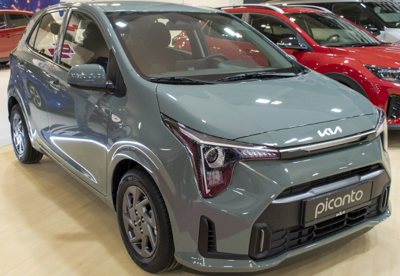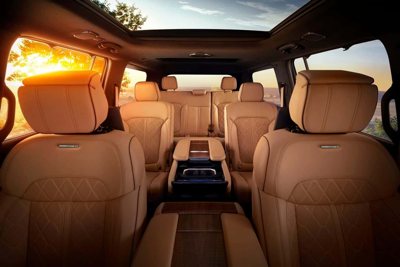When deciding on a car to buy, some factors worth considering include ease of parking, driving experience and passenger comfort.
In this article, we will look at how vehicle sizes and dimensions affect each of these aspects.
 Ease of Parking
Ease of Parking
Ease of parking is a major factor to consider when choosing a car. You don't want to buy a car only to discover that it won't fit into your garage or usual parking space.
Apart from parking it in your garage, you will drive the car around regularly so it is smart to make sure the car is one that won't be a challenge to park as you go about your daily commute.
Generally, smaller cars like Kia Picanto and Fiat 500 glide easily into tight spaces because of their sizes and dimensions. City dwellers find such cars a delight since urban areas usually have some parking challenges.
Larger vehicles like full-size SUVs and pickup trucks offer generous space for cargo and passengers but parking may a bit difficult in tight spaces. Their length, extended wheelbases and wider bodies may require extra effort to park. An example is the Chevrolet Suburban, which is a full-size SUV, known for its spacious interior and awesome towing capacity, but its length (over 225 inches) can make parallel parking and tight garage fits an issue.
Thankfully, recent models of larger vehicles come with advanced parking features like parking sensors, rearview cameras and automated parking systems but this does not change the size of the vehicle and finding the right parking space to fit into may be a bit difficult at times.
Driving Experience: Maneuverability and More
There is no denying the fact that the size and dimensions of a vehicle impacts its driving experience.
Compact cars offer easy maneuverability and typically better fuel economy. Because smaller cars are usually more agile and easier to handle, they are a top choice for city driving.
Mid-size sedans and crossovers strike a balance. They offer decent maneuverability and typically more cabin and storage space.
Larger vehicles like SUVs and trucks are great for rough terrains and offer great cargo and passenger space. But when it comes to tight turns and quick lane changes, they are of no help.
 Comfort
Comfort
Gone are the days when the primary consideration for choosing a car was just to get from one point to another quickly. Comfort is now a major factor people consider when deciding on a car to buy or rent.
The size and dimensions of a vehicle can greatly impact the comfort level of its occupants. Generally, larger vehicles are known for more interior space, including legroom, headroom, and cargo capacity. This make long road trips in such vehicles more comfortable.
It is worthy of note that larger vehicles may have a higher center of gravity, which can affect their stability and ride comfort.
Smaller cars usually have less interior space than larger ones but they are designed to be more fuel-efficient and easier to handle, which can make them more enjoyable to drive.
Making the Right Decision
The right decision depends on your needs and expectations so ultimately, choosing the right vehicle size is up to you. If you are a city commuter you may have to prioritize easy parking and maneuverability. If you have a growing family, interior space may be something you can't compromise on.
The good news is car manufacturers are increasingly designing vehicles that challenge traditional size expectations. So there are small SUVs that offer big space and electric cars with good interior space since they don't have the usual bulky engine components of traditional cars.
By researching different models and considering your lifestyle, you can make an informed decision that suits your needs.
